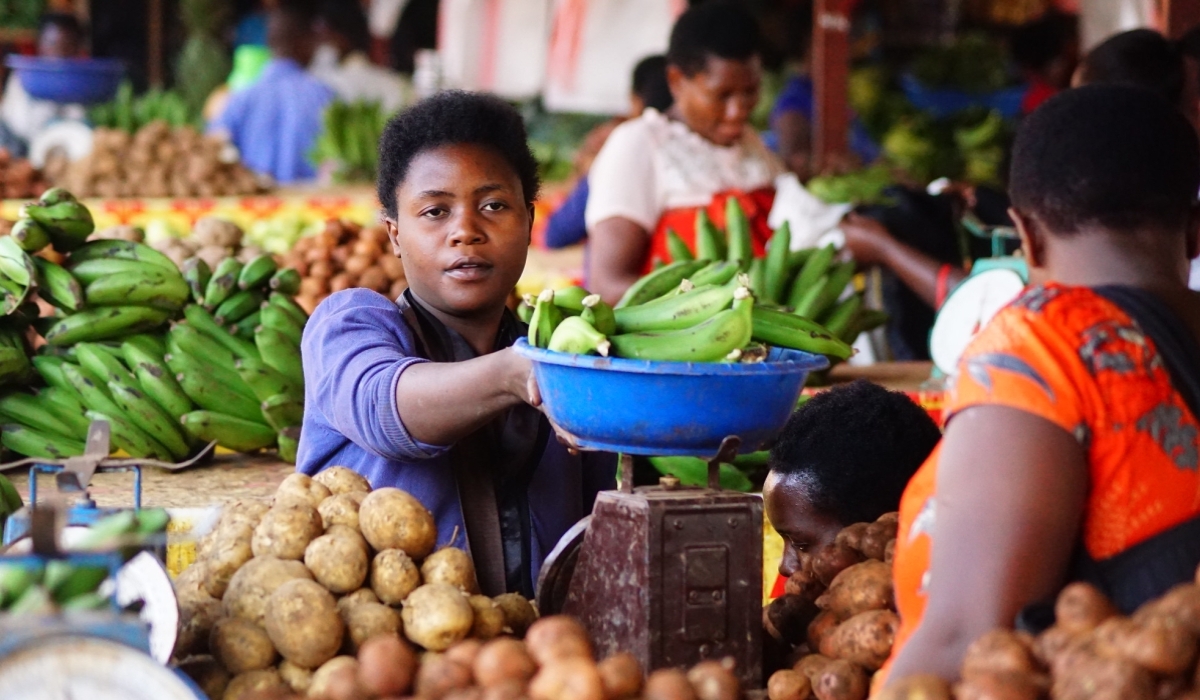Consumer prices decelerate to 6.4 percent in December 2023

The increase of consumer prices on Rwanda’s market eased to 6.4 percent in December 2023, compared to the same period in 2022, according to the National Institute of Statistics Rwanda (NISR).
It is the first time, since 2022, that the country has seen inflation figures within the National Bank of Rwanda target range between 2 percent and 8 percent.
Data from NISR released on January 10 also indicated that the annual average inflation between December 2023 and December 2022 was 14 percent.
Eugene Kajigija, NISR’s Manager of Economic Statistics, said: “We can expect the decelerating trend to be sustained throughout January and February [2024] because we are still harvesting food crops, which holds a major share in inflation calculations.”
Inflation is the pace at which prices of consumables increase on the market year on year and on a monthly basis, and it is calculated based on approximately 1,622 products in 12 urban centres of Rwanda.
In November 2022, it reached its highest peak at 21.7 percent before starting a decelerating trend since the beginning of 2023, following different government measures put in place to tame it, despite the poor agriculture performance that persisted across seasons over two consecutive years.
Prices of foodstuffs and non-alcoholic beverages increased by 11.6 per cent, bread and cereal prices declined by 0.6 per cent, meat prices by 11.4 per cent, milk, cheese, and eggs by 8.7 per cent, and vegetables by 10.3 per cent.
The cost of housing, water, electricity, gas, and other fuels increased by 1.5 per cent, transportation rose by 6.7 per cent, while prices in restaurants and hotels increased by 4.8 per cent.
Owing to the recent agriculture season that relatively performed better compared to previous ones, consumers started seeing a drop in food products on the market towards the end of 2023, especially for irish potatoes.
Eugene Kajigija, NISR’s Manager of Economic Statistics, noted that the changes in consumer prices is mainly impacted by more foodstuffs available on the market because of increased agriculture produce from season A (September to December).
Additionally, he pointed at the reduced transport segment that takes into account fuel and automotive spare parts’ prices which also decreased.
Overall, the decline is also attributed to the monetary policy tightening measures taken throughout 2023, government-incentivised measures, and falling prices of major international commodities.
With the National Bank of Rwanda (NBR) maintaining the key repo rate at 7.5 percent in November 2023 to tame inflation and observation from global economic trends, economists expect inflation to further ease in 2024, subject to agricultural performance and geopolitical climate.
The central bank projects inflation to average around five per cent in 2024. At the global level, it is expected to reach 5.8 per cent in 2024.

